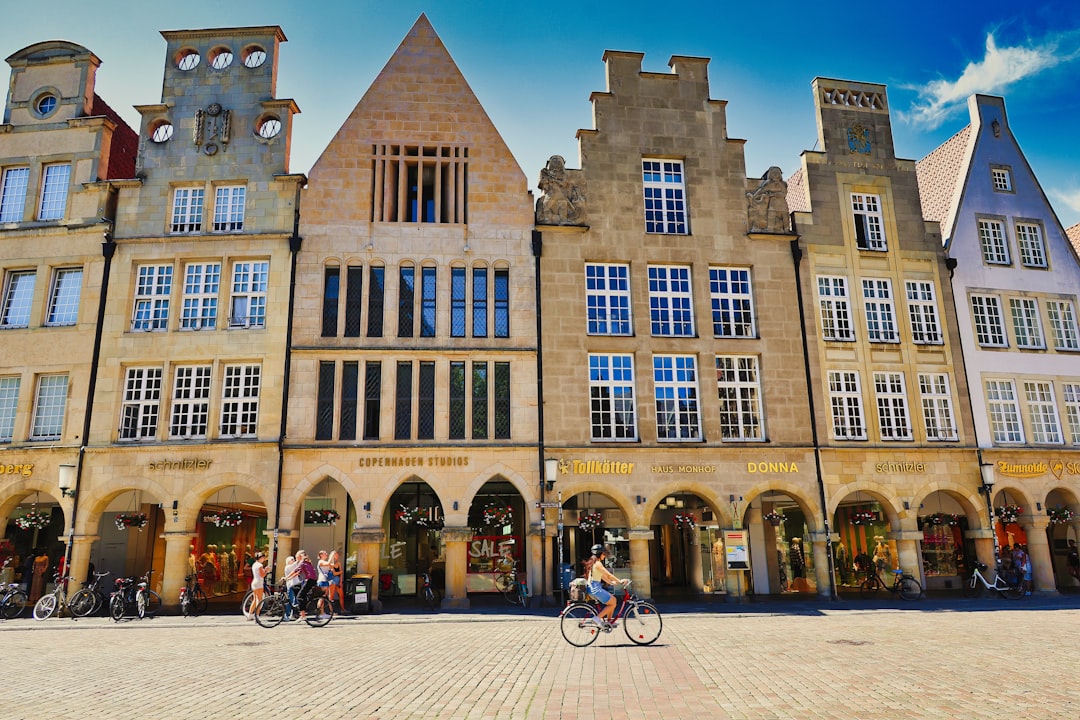Spain for Digital Nomads Safety Secrets and Lifestyle Hacks

Introduction
Spain has become a magnet for digital nomads seeking sun, culture, and reliable connectivity. The country blends historic charm with modern infrastructure, making it an attractive base for remote work. Yet, thriving in a new environment requires more than just a Wi‑Fi plan. Knowing the safety nuances and lifestyle shortcuts can turn a good stay into an unforgettable experience. This guide uncovers the hidden safety secrets and practical hacks that let you focus on productivity while soaking up Spanish life.
Why Spain Stands Out
- Geographic diversity – From the beaches of Costa Brava to the mountains of the Pyrenees, Spain offers a range of climates that suit any preference.
- English‑friendly hubs – Cities such as Barcelona, Madrid, Valencia, and Malaga host vibrant expat communities where English is widely spoken.
- Strong digital infrastructure – 5G coverage is expanding rapidly and co‑working spaces are plentiful in major cities.
- Quality of life – A relaxed pace, generous work‑life balance, and a cuisine that celebrates fresh, local ingredients create an environment that nurtures creativity.
Visa and Legal Basics
Spain introduced a specific Digital Nomad Visa in 2023. The permit allows non‑EU citizens to stay for up to one year, with the possibility of renewal. Key eligibility points:
- Proof of remote employment or freelance contracts that generate a minimum monthly income (around €2,000).
- Health insurance that covers Spain for the duration of the stay.
- A clean criminal record from your home country.
The application process is handled through Spanish consulates or the Ministry of Labour’s online portal. Submit all documents in Spanish or provide certified translations to avoid delays. Once approved, you will receive a residence card that doubles as a work permit for remote activities only.
General Safety Overview
Spain is one of the safest countries in Europe, but common sense still matters. Crime rates are low compared to many global destinations, yet petty theft, especially in tourist hotspots, remains the most frequent issue. Violent crime is rare, but be aware of the following:
- Pickpocketing – Crowded metros, markets, and festivals are prime spots. Keep wallets in front pockets and use anti‑theft bags.
- Scams – Street vendors may overcharge tourists. Agree on prices before purchasing.
- Nighttime caution – Certain neighborhoods in larger cities have higher incidences of drug‑related disturbances after dark. Stick to well‑lit streets and avoid isolated alleys.
Overall, a mindful approach combined with local knowledge keeps you safe.
Neighborhood Safety Tips
Each city has districts that cater to different lifestyles and safety preferences. Below are the top neighborhoods for digital nomads in three major hubs.
Barcelona
- Eixample – Wide avenues, modernist architecture, and a strong police presence make it a comfortable choice for newcomers.
- Gràcia – Bohemian vibe, small squares, and a tight‑knit community. Crime is low, but the area gets lively at night; keep an eye on personal belongings.
- Poblenou – Home to many start‑ups and co‑working spaces. The beachfront location adds a relaxed feel, and the neighborhood is well‑patrolled.
Madrid
- Salamanca – Upscale area with luxury boutiques and quiet streets. Safety is high, and many expats live here.
- Malasaña – Trendy, artistic district with a youthful energy. Pickpocketing can occur in busy bars, so stay vigilant.
- Chamartín – Residential feel, excellent transport links, and a growing number of co‑working hubs.
Valencia
- Ruzafa – Cultural hotspot with cafés, galleries, and a strong expat presence. Nightlife is active, but the area remains safe for solo travelers.
- El Cabanyal – Coastal charm, quieter evenings, and a growing community of remote workers.
- Cánovas – Central location, good public transport, and a mix of modern apartments and historic buildings.
When choosing accommodation, prioritize buildings with secure entry systems, CCTV, and on‑site management.
Health and Emergency Essentials
Spain offers a high‑quality public health system (Sistema Nacional de Salud). EU citizens can access services with a European Health Insurance Card (EHIC). Non‑EU nomads should secure private health insurance that covers hospitalization, prescriptions, and emergency evacuation.
- Emergency numbers – Dial 112 for medical, fire, or police emergencies. The operator speaks multiple languages, including English.
- Pharmacies – Identified by a green “Farma” sign. Most operate 24 hours in larger cities. Ask the pharmacist for generic alternatives to reduce costs.
- Hospitals – Public hospitals provide excellent care but may have longer waiting times for non‑urgent issues. Private clinics are a faster option for routine check‑ups.
Carry a digital copy of your insurance card and a list of any chronic conditions or allergies.
Money, Banking, and Payment Hacks
Spain uses the euro, and most transactions are cashless. Here are practical tips to keep your finances smooth and secure:
- Bank accounts – Opening a local account simplifies bill payments and eliminates foreign transaction fees. Major banks like Santander, BBVA, and CaixaBank offer accounts with English‑speaking staff.
- ATMs – Look for machines operated by the bank that issued your card to avoid surcharge fees. Withdraw larger amounts to reduce per‑withdrawal costs.
- Digital wallets – Apple Pay, Google Pay, and local options like Bizum are widely accepted. Bizum allows instant transfers between Spanish phone numbers, useful for splitting meals or paying local services.
- Currency exchange – Avoid airport kiosks. Use reputable exchange offices in city centers or withdraw cash from ATMs for better rates.
Transportation Hacks for Nomads
Spain’s transport network is a blend of high‑speed trains, regional buses, and bike‑friendly cities. Mastering these options saves both time and money.
- Renfe high‑speed (AVE) – Connects major cities (Madrid‑Barcelona‑Seville) in under three hours. Booking tickets a month in advance can yield discounts up to 40 %.
- Metro and buses – Cities offer integrated tickets (T‑10 in Barcelona, Metrobus in Madrid) that provide ten rides at a reduced price. Purchase these tickets at station kiosks or via official apps.
- Biking – Barcelona, Valencia, and Seville have extensive bike‑share programs. Use the city’s app to locate stations and rent bikes for short commutes.
- Car rentals – For weekend trips to rural areas, consider renting a compact car. Many agencies offer unlimited mileage packages and allow pick‑up at airports.
Always keep a copy of your travel insurance and driving license (if renting a car) on your phone.
Co‑working Spaces and Work‑friendly Cafés
A productive environment is essential for remote work. Spain’s co‑working scene is diverse, ranging from sleek corporate hubs to artistic lofts.
- Barcelona – Spaces like Betahaus, Cloudworks, and Talent Garden combine fast internet with networking events.
- Madrid – WeWork, Utopicus, and Impact Hub offer flexible desks and community programs.
- Valencia – Wayco, Vortex, and The Shed provide affordable day passes and a relaxed atmosphere.
If you prefer cafés, look for places with reliable Wi‑Fi, power outlets, and a “no laptop” policy at peak hours. Popular chains such as Starbucks and local cafés like Café de Oriente (Madrid) or Federal Café (Barcelona) are reliable options.
Accommodation Strategies
Finding the right home base can dramatically affect your experience. Below are proven strategies for securing safe, comfortable lodging.
- Short‑term rentals – Platforms like Airbnb and Vrbo dominate the market. Filter results for “verified ID” and read recent reviews that mention safety and internet speed.
- Serviced apartments – Offer hotel‑like amenities with kitchen facilities. Companies like Spotahome specialize in mid‑term stays (one to three months).
- Coliving communities – Designed for remote workers, coliving spaces provide furnished rooms, shared work areas, and social events. Examples include The Collective in Madrid and Urban Campus in Barcelona.
When signing a lease, request a clause that allows early termination without penalty, especially if you plan to move between cities.
Lifestyle Hacks: Food, Language, and Culture
Eating Smart
- Tapas culture – Small plates encourage sharing and keep meals inexpensive. Look for “menú del día” (set menu) at lunchtime for a three‑course meal at a fixed price.
- Local markets – Visit Mercat de Sant Josep de la Boqueria (Barcelona) or Mercado de San Miguel (Madrid) for fresh produce. Buying groceries and cooking at home reduces costs and improves nutrition.
- Budget-friendly chains – Supermercado Día and Lidl offer low‑priced staples. Keep an eye on weekly flyers for special offers on meat, fish, and pantry items.
Language Hacks
- Basic phrases – Learning greetings, thank‑you, and directions builds goodwill. Spaniards appreciate any effort, even if your pronunciation is imperfect.
- Language exchange – Join “intercambio” meetups in cafés or use apps like Tandem to practice Spanish while helping locals improve English.
- Free resources – The municipal libraries in most cities provide free language courses for residents. Register with your passport and proof of address.
Cultural Etiquette
- Siesta – While the traditional afternoon break is less common in large cities, many smaller towns still close shops between 2 p.m. and 5 p.m. Plan meetings accordingly.
- Greetings – A kiss on each cheek is standard among friends and acquaintances. In professional settings, a firm handshake is appropriate.
- Dress code – In coastal areas, casual beachwear is fine on the sand but not in city centers or restaurants. Opt for smart‑casual attire for evenings out.
Social Integration and Networking
Building a social circle accelerates your adaptation. Here are effective ways to meet fellow nomads and locals.
- Meetup groups – Search for “digital nomad,” “expat,” or “tech” gatherings on Meetup.com. Most events are free or have a modest fee for venue costs.
- Co‑working events – Many spaces host weekly happy hours, workshops, and pitch nights. Attend these to network with entrepreneurs and freelancers.
- Volunteer – Local NGOs often need English speakers for translation or event assistance. Volunteering provides purpose and introduces you to community leaders.
Remember to carry a small business card with your name, profession, and contact details. In Spain, exchanging cards is a common practice in professional settings.
Tech Infrastructure and Connectivity
A reliable internet connection is non‑negotiable for remote work. Spain’s broadband landscape offers several options:
- Fiber optic – Major providers (Movistar, Orange, Vodafone) deliver speeds up to 1 Gbps in most urban areas. Installation may take a few weeks, so schedule it early if you plan a long‑term stay.
- Mobile data – 4G coverage is extensive, and 5G is rolling out in cities. Prepaid SIM cards (e.g., Simyo, MasMovil) can be purchased at airports or convenience stores. Choose a plan with at least 10 GB of data to support video calls and cloud backups.
- Public Wi‑Fi – Municipal Wi‑Fi zones exist in Barcelona’s “Wi‑Fi BCN” and Madrid’s “Wi‑Fi Madrid” initiatives. Use a VPN when connecting to public networks to protect sensitive information.
Carry a portable power bank and a universal travel adapter (Spain uses type C and F plugs).
Weather and Seasonal Tips
Spain’s climate varies dramatically from north to south. Understanding the weather helps you pack appropriately and plan activities.
- Winter (December‑February) – Northern regions like Galicia experience rain and cooler temperatures (5‑12 °C). Southern areas such as Andalusia remain mild (12‑18 °C). Pack a waterproof jacket and layers.
- Spring (March‑May) – Ideal for exploring cities and countryside. Temperatures rise to 15‑22 °C across most regions. Bring a light sweater for evenings.
- Summer (June‑August) – Coastal cities can reach 30 °C, while interior locations like Madrid often exceed 35 °C. Stay hydrated, use sunscreen, and consider a siesta during peak heat.
- Autumn (September‑November) – Pleasant temperatures and fewer tourists. Great time for festivals such as La Mercè in Barcelona.
Seasonal adjustments also affect opening hours of attractions. Some museums close on Mondays, while many shops reduce hours during August holidays.
Practical Checklist for a Safe and Smooth Stay
- Visa documents – Print and store digital copies of your Digital Nomad Visa, work contracts, and proof of income.
- Health insurance – Keep policy details and emergency contact numbers on your phone.
- Local SIM – Activate within the first 48 hours for reliable communication.
- Banking – Open a Spanish account or ensure your home bank offers fee‑free euro withdrawals.
- Emergency contacts – List the nearest police station, hospital, and embassy.
- Security gear – Use a theft‑proof backpack, a lock for your luggage, and a password manager for online accounts.
- Work tools – Pack a lightweight laptop, a USB‑C hub, noise‑cancelling headphones, and a portable monitor if needed.
- Cultural notes – Learn basic Spanish greetings, familiarize yourself with local customs, and keep a list of useful phrases.
Final Thoughts
Spain offers an enviable blend of safety, lifestyle richness, and digital readiness that makes it a premier destination for remote professionals. By understanding the subtle safety nuances, leveraging practical hacks, and immersing yourself in the local culture, you can transform a routine work‑from‑anywhere stint into a thriving, memorable adventure.
Take the insights from this guide, adapt them to your personal preferences, and let Spain’s vibrant streets, flavorful cuisine, and welcoming people propel your productivity and happiness to new heights. Safe travels and happy nomading!
Random Posts

How Much Does Bali Really Cost for Remote Workers
Discover the real monthly cost of living in Bali as a remote worker, from affordable housing and coworking fees to hidden expenses, so you can budget confidently and choose the right spot for work and life
2 months ago

The Complete Nomad Starter Kit Packing Tips and Resources
Master the art of nomad packing with a minimalist mindset, essential categories, smart techniques, and top resources to keep your starter kit light, organized and ready for any adventure.
1 month ago

Top Strategies For Managing Projects Across Multiple Time Zones
Learn how to turn global time zone differences into a strength with proven planning, clear communication habits, smart tools, and a culture that respects each team's rhythm and goals
1 month ago

Tech‑Friendly European Towns Perfect for Remote Living
Discover Europe’s best small towns where fast internet, affordable living and vibrant tech communities let you work remotely while soaking up historic charm, lakeside views or mountain air.
1 day ago

Balancing Work and Exploration Productivity Hacks for Nomads
Learn how nomads can turn wanderlust into productivity by adopting a mission first mindset, simple routines, and smart hacks that let work and adventure coexist without guilt or burnout.
2 months ago
Latest Posts

Essential Software Every Remote Professional Should Use
Master remote work with essential tools: instant messaging like Slack, high definition video calls such as Zoom, and asynchronous voice apps. Streamline communication, stay connected and boost productivity.
1 day ago

Mastering Remote Work Productivity for Digital Nomads and Freelancers
Learn proven habits, tools, and tactics that help digital nomads and freelancers stay focused, deliver quality work, and maintain a sustainable lifestyle while traveling the world.
1 day ago

Tech‑Friendly European Towns Perfect for Remote Living
Discover Europe’s best small towns where fast internet, affordable living and vibrant tech communities let you work remotely while soaking up historic charm, lakeside views or mountain air.
1 day ago